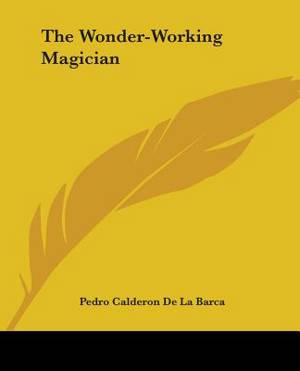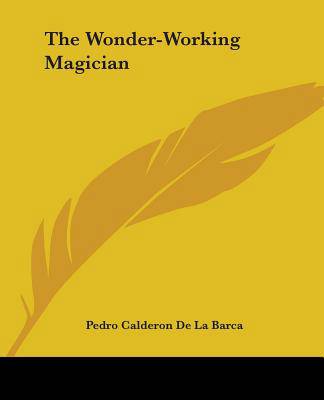
- Afhalen na 1 uur in een winkel met voorraad
- Gratis thuislevering in België vanaf € 30
- Ruim aanbod met 7 miljoen producten
- Afhalen na 1 uur in een winkel met voorraad
- Gratis thuislevering in België vanaf € 30
- Ruim aanbod met 7 miljoen producten
Zoeken
€ 25,45
+ 50 punten
Uitvoering
Omschrijving
The Wonder-Working Magician is a play written by Spanish playwright Pedro Calderon De La Barca. The story is set in a fictional kingdom where the king is in love with a woman named Estrella. However, Estrella is already engaged to another man named Clotaldo. The king seeks the help of a magician named Cipriano to win Estrella's love.Cipriano is a powerful magician who agrees to help the king, but he has his own agenda. He wants to use his magic to gain power and control over the kingdom. He uses his powers to create illusions and manipulate the people around him, including the king and Estrella.As the story unfolds, Cipriano's true intentions are revealed, and the characters are forced to confront the consequences of their actions. The play explores themes of love, power, and the dangers of manipulation.The Wonder-Working Magician is a classic example of Spanish Golden Age theater and is considered one of Calderon's most popular works. It has been adapted into various forms, including operas and ballets, and continues to be performed in theaters around the world.LELIUS. This excelleth, Good, in faith, is it thus to dim The clear light of my resentment, By attributing to me That which solely your offence is!-- Who you are I have to know, Death to give to him who has left me Dead with jealousy here, by coming From this balcony.This scarce antiquarian book is a facsimile reprint of the old original and may contain some imperfections such as library marks and notations. Because we believe this work is culturally important, we have made it available as part of our commitment for protecting, preserving, and promoting the world's literature in affordable, high quality, modern editions, that are true to their original work.
Specificaties
Betrokkenen
- Auteur(s):
- Uitgeverij:
Inhoud
- Aantal bladzijden:
- 216
- Taal:
- Engels
Eigenschappen
- Productcode (EAN):
- 9781419188442
- Verschijningsdatum:
- 17/06/2004
- Uitvoering:
- Paperback
- Formaat:
- Trade paperback (VS)
- Afmetingen:
- 194 mm x 234 mm
- Gewicht:
- 376 g

Alleen bij Standaard Boekhandel
+ 50 punten op je klantenkaart van Standaard Boekhandel
Beoordelingen
We publiceren alleen reviews die voldoen aan de voorwaarden voor reviews. Bekijk onze voorwaarden voor reviews.








